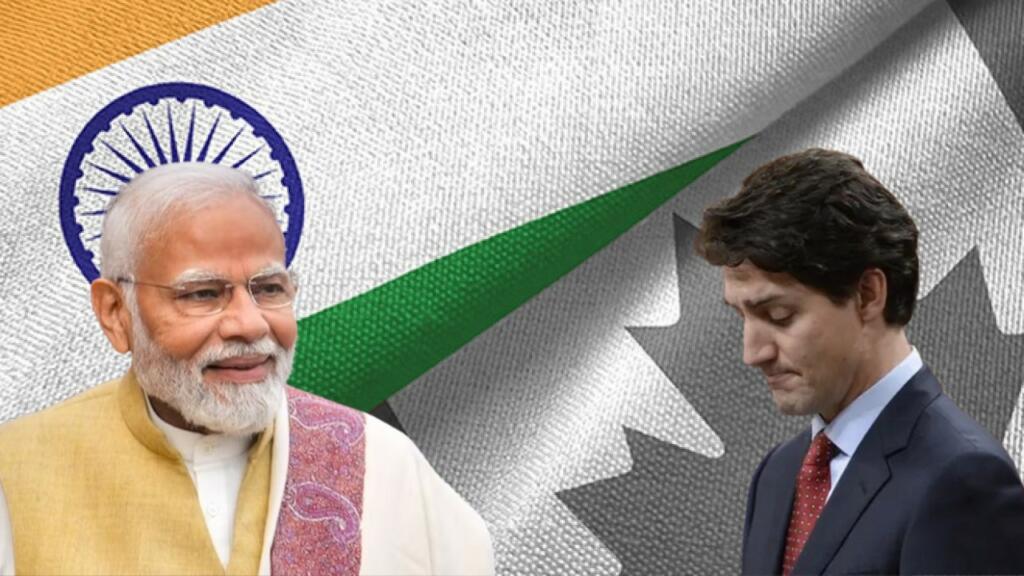In September 2023, Canadian Prime Minister Justin Trudeau made startling accusations against the Indian Government, alleging their involvement in the killing of Khalistani terrorist Hardeep Singh Nijjar in Surrey, Canada. Despite the gravity of these claims, Trudeau has been unable to provide concrete evidence to support his assertions.
The Indian Government promptly and vehemently denied any involvement in Nijjar’s death, demanding that Canada produce proof to substantiate the serious allegations. However, Trudeau continued to repeat the accusations without presenting any solid evidence against India.
Contrary to Trudeau’s claims, Canadian law enforcement agencies have conducted thorough investigations and found no concrete links supporting the notion that the killers of Hardeep Singh Nijjar were acting under the direction of the Government of India. This absence of substantiating evidence contradicts the narrative put forth by the Canadian Prime Minister.
Throughout the ordeal, Canada has maintained the assumption that Nijjar’s killing was orchestrated by the Government of India. Despite this stance, the Canadian authorities have been unable to produce any conclusive evidence to validate their assertions. The lack of proof raises questions about the credibility and accuracy of Trudeau’s allegations.
Also Read: India Vs Canada+West: What happened, why it happened and what will happen?
In the world of diplomacy, it is crucial to emphasize the importance of evidence-based claims and diplomatic responsibility. Unsubstantiated accusations can have severe consequences for international relations, and the burden of proof rests on those making the claims. As of now, the Canadian Prime Minister’s repeated allegations against the Indian Government remain unsupported by concrete evidence, leaving the international community with an unresolved and potentially damaging situation.
Hardeep Singh Nijjar was a known senior figure in the Khalistan Tiger Force and was associated with Pakistan’s intelligence agency, ISI. Nijjar was also a wanted terrorist in India. His demise raises questions about the motives behind his killing. While initial suspicions pointed towards political motivations, officials monitoring the situation in Delhi suggest a different narrative.
It is proposed that Nijjar’s demise may be attributed to the intricate web of criminal activities in Canada, where he operated. Analysts propose that he may have fallen victim to a gang-related conflict, possibly stemming from a business deal gone awry or a bid for regional dominance. Nijjar, leveraging his influence, was reportedly engaged in illicit activities, thereby attracting the attention of various criminal elements vying for supremacy in the region.
Canada itself harbours a significant challenge with organized crime, with at least 3,000 criminal gangs reported to be active within the country, according to assessments by Canadian security agencies. The vast network of these gangs, each pursuing its own interests, adds complexity to understanding the circumstances surrounding Nijjar’s killing.
The prevailing theory posits that Nijjar’s death might be a consequence of a broader gang war, a hypothesis supported by the intricate and multifaceted criminal landscape in Canada. As law enforcement authorities delve into the investigation, they are faced with the challenge of untangling the complex web of criminal enterprises and rivalries that may have played a role in Nijjar’s demise.
The prevailing theory within security agencies suggests the possibility of officials close to Canadian Prime Minister Justin Trudeau employing coercive measures, including physical and other forms of torture, to force the killers of Hardeep Singh Nijjar into confessing links to Indian security agencies. This speculation arises from concerns about Trudeau’s potential loss of face, though it is doubted that such tactics would prove fruitful for Canada, as India closely monitors the situation.
A recent report from the Globe and Mail revealed that two suspects believed to be responsible for Nijjar’s killing were under close scrutiny by Canadian law enforcement. According to sources, the suspects, who never left Canada after the shooting, participated in the murder alongside four accomplices. The investigation, led by Sergeant Timothy Pierotti of the Integrated Homicide Investigation Team, is actively seeking more evidence related to Nijjar’s murder.
Hardeep Singh Nijjar holds significance for Trudeau as the Canadian Prime Minister faces dwindling popular support. Losing favour among white Canadians, with Sikhs gravitating towards the NDP and dissatisfaction among Muslims over his pro-LGBTQ stance, Trudeau’s political standing is increasingly precarious. Attempting to regain geopolitical influence and secure support, Trudeau sought a victory by highlighting the Nijjar case, anticipating that the Khalistani elements within Sikh base would remain loyal. However, this strategy seems to have encountered resistance, symbolized as hitting the “Modi wall.”
The “Modi wall” refers to Prime Minister Modi’s track record as a purported career-killer. Figures like Mahathir Mohammad, former Prime Minister of Malaysia, KP Sharma Oli, former Prime Minister of Nepal, and Imran Khan, former Prime Minister of Pakistan, have all faced political setbacks after encountering Modi. Justin Trudeau appears to be the latest addition to this list, facing challenges and potential resignation within the next six months.
As events unfold, the dynamics between Canada and India, the repercussions of Trudeau’s geopolitical aspirations, and the broader implications of the “Modi wall” continue to shape this evolving narrative.
